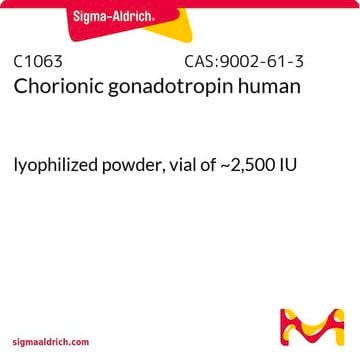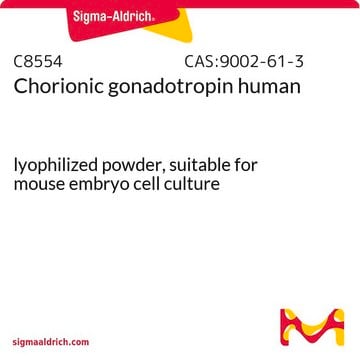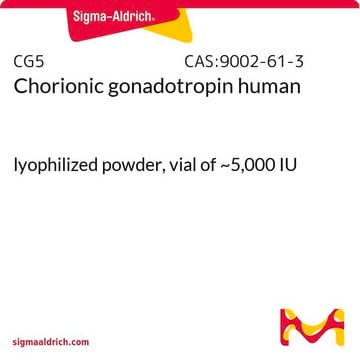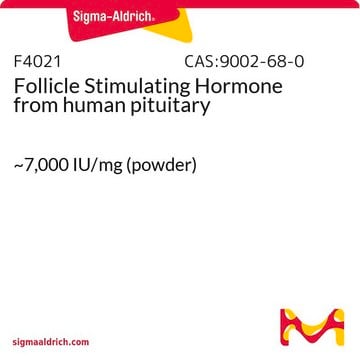C8667
Cholesterol
Sigma Grade, ≥99%
Synonym(s):
3β-Hydroxy-5-cholestene, 5-Cholesten-3β-ol
About This Item
Recommended Products
biological source
sheep wool
grade
Sigma Grade
Assay
≥99%
form
powder
bp
360 °C (lit.)
mp
147-149 °C (lit.)
solubility
water: soluble 0.00003 g/L at 20 °C
density
1.067 g/mL at 25 °C (lit.)
shipped in
ambient
storage temp.
−20°C
SMILES string
CC(C)CCC[C@@H](C)[C@H]1CC[C@H]2[C@@H]3CC=C4C[C@@H](O)CC[C@]4(C)[C@H]3CC[C@]12C
InChI
1S/C27H46O/c1-18(2)7-6-8-19(3)23-11-12-24-22-10-9-20-17-21(28)13-15-26(20,4)25(22)14-16-27(23,24)5/h9,18-19,21-25,28H,6-8,10-17H2,1-5H3/t19-,21+,22+,23-,24+,25+,26+,27-/m1/s1
InChI key
HVYWMOMLDIMFJA-DPAQBDIFSA-N
Gene Information
human ... POLA1(5422) , TOP2A(7153)
rat ... Ar(24208) , Polb(29240)
Looking for similar products? Visit Product Comparison Guide
Related Categories
Application
Biochem/physiol Actions
Preparation Note
also commonly purchased with this product
related product
Storage Class Code
11 - Combustible Solids
WGK
WGK 1
Flash Point(F)
Not applicable
Flash Point(C)
Not applicable
Personal Protective Equipment
Certificates of Analysis (COA)
Search for Certificates of Analysis (COA) by entering the products Lot/Batch Number. Lot and Batch Numbers can be found on a product’s label following the words ‘Lot’ or ‘Batch’.
Already Own This Product?
Find documentation for the products that you have recently purchased in the Document Library.
Customers Also Viewed
Articles
Cholesterol biosynthesis starts in the hepatic endoplasmic reticulum with acetyl-CoA, yielding 3-hydroxy-3-methylglutaryl-CoA via HMG-CoA synthase.
Cholesterol biosynthesis starts in the hepatic endoplasmic reticulum with acetyl-CoA, yielding 3-hydroxy-3-methylglutaryl-CoA via HMG-CoA synthase.
Cholesterol biosynthesis starts in the hepatic endoplasmic reticulum with acetyl-CoA, yielding 3-hydroxy-3-methylglutaryl-CoA via HMG-CoA synthase.
Cholesterol biosynthesis starts in the hepatic endoplasmic reticulum with acetyl-CoA, yielding 3-hydroxy-3-methylglutaryl-CoA via HMG-CoA synthase.
Our team of scientists has experience in all areas of research including Life Science, Material Science, Chemical Synthesis, Chromatography, Analytical and many others.
Contact Technical Service







